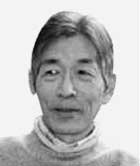【特別寄稿】
|
On the Two Desires in South Korea |
Chung Daekyun
Professor Emeritus, Tokyo Metropolitan University |
 Two desires Two desires
The late anthropologist Clifford Geertz once observed that people living in the new states that gained independence following World War II were driven simultaneously by two desires (although Geertz himself used the term, “motives”). When states were able to maintain a benign tension between these two desires they moved forward in development, but when the two desires occasionally stood in opposition to one another, this obstructed a state's development and brought about the greatest harm.
So, what were the two desires? One was the desire to be known and respected in international society, while the other was the desire to build a dynamic and efficient modern state. The former desire was one of self-assertion and approval—the desire to be recognized as a member of the community of states. The latter was the practical desire to improve living standards for the people living in a given state, to form an effective government, and to expand social justice.
In The Integrative Revolution, The Interpretation of Cultures (Basic Books,1973), Geertz, thinking mainly of the polyglot, multi-ethnic, multi-creedal countries of Asia and Africa, states that the two desires give rise to “severe and chronic” tension for two reasons. The first reason is that peopleʼs sense of self is deeply bound up in primordial sentiments such as blood ties, race, locality, language, and religion, and the second reason is that independent states are increasingly important for the realization of group aims. The Integrative Revolution was first published in 1963, and was written during a period of severe trial for the many Asian and African independent nations then coming into existence.
I first encountered The Integrative Revolution in the late 1980s, when I was living in South Korea. The term, “primordial sentiments” struck a chord within me. I felt then that I might write a compelling theory of South Korea using “primordial sentiments” as my touchstone, but as time passed and the work remained unfinished, I eventually forgot about my own ideas and Geertzʼ book itself.
|
続きをご覧になりたい方は...
|
|